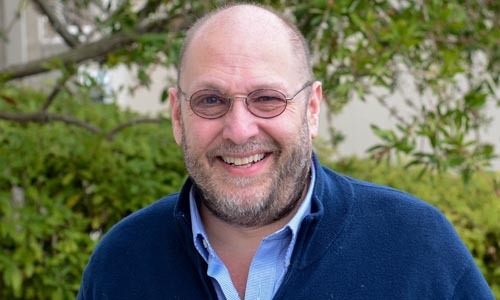
The Bio Report podcast, hosted by award-winning journalist Daniel Levine, focuses on the intersection of biotechnology with business, science, and policy.
The Bio Report podcast, hosted by award-winning journalist Daniel Levine, focuses on the intersection of biotechnology with business, science, and policy.
Episodes

Wednesday Jul 31, 2024
A Seek and Destroy Approach to Disease-Causing Proteins
Wednesday Jul 31, 2024
Wednesday Jul 31, 2024
The body has a natural mechanism for breaking down and clearing proteins. Arvinas is among a group of companies that’s seeking to harness this mechanism for therapeutic purposes. It has platform technology that enables the development of targeted protein degraders to breakdown disease-causing proteins. Among the benefits of this approach is that it offers a way to target so-called undruggable proteins that conventional drugs are not able to bind with in a strong enough way. We spoke to Randy Teel, chief business officer and interim chief financial officer of Arvinas, about protein degradation, its evolution as a therapeutic strategy, and the range of indications the company is pursuing.

Wednesday Jul 24, 2024
Teaching Tolerance to Address Autoimmune Diseases
Wednesday Jul 24, 2024
Wednesday Jul 24, 2024
The traditional approach to treating autoimmune disease has relied on ways to suppress the immune system. COUR Pharmaceuticals is developing first-in-class therapies that instead seek to reprogram the immune system to create antigen-specific tolerance. We spoke to COUR CEO John Puisis and COUR Vice President of Research Adam Elhofy, about how the company’s immune-modifying nanoparticles work, how the approach preserves the immune response, and its partnership with Takeda focused on celiac disease.

Wednesday Jul 17, 2024
A Bet That the Next Blockbuster May Already Be Inside You
Wednesday Jul 17, 2024
Wednesday Jul 17, 2024
The next blockbuster drug may already be in production by bacteria within your body. Bacteria produce unique chemical compounds that are bioactive and may have great therapeutic potential, but this chemical space has largely not been mined. Empress Therapeutics, a Flagship Pioneering company, is searching for such molecules by exploring the genes of bacteria that live in the human body to search for the molecules they produce and identify compelling drug candidates. Since its founding in 2020, the company has already identified 15 novel candidates. We spoke to Sabrina Yang, chief innovation officer for Empress and a principal at Flagship Pioneering, about how exploring the bacterial metagenome in the human body can point the way to the next blockbuster drug, the role AI plays in its platform, and how this approach can accelerate the time and reduce the cost of drug development.

Wednesday Jul 10, 2024
A Big Mac Attack to Fight Cancer
Wednesday Jul 10, 2024
Wednesday Jul 10, 2024
In most cases, the immune system detects and destroys cells that could become cancerous every day. For cancer to ravage the body, it needs to evade the immune system by shutting off its response. SIRPant Immunotherapeutics is seeking to address cancer by activating and modifying a patient’s own macrophages to awaken the immune system to cancer. The activated macrophages are able to recognize and directly attack cancer cells throughout the body and stimulate other parts of the immune system to sustain a prolonged attack. We spoke to Robert Towarnicki, CEO of SIRPant, about the company’s immunotherapies, the advantages they offer over other approaches, and why its platform can be applied to other diseases involving immune dysfunction beyond cancer.

Wednesday Jul 03, 2024
Getting Animated about Bioliteracy
Wednesday Jul 03, 2024
Wednesday Jul 03, 2024
As the founder of SynBioBeta, John Cumbers has long evangelized to investors, entrepreneurs, and forward-thinking industrialists about the emergence of the bioeconomy. Cumbers, however, wants to share his sense of wonder about molecular biology with a broader audience through his new venture, Biological Enlightenment Studios. His ambition is for the studio to become a Pixar for curious-minded youngsters. The studio’s first effort will be Lee's Lab, an animated series that follows the 12-year-old title protagonist through the jungles of Borneo as she seeks to understand the secrets of molecular biology and the splendors of biodiversity. We spoke to Cumbers about Biological Enlightenment Studios, his desire to spark the imagination of a new generation about the marvels of biology, and why bioliteracy matters for the growth and health of the bioeconomy.

Wednesday Jun 26, 2024
Reshaping Clinical Trial Designs with Real-World Data
Wednesday Jun 26, 2024
Wednesday Jun 26, 2024
Electronic health records are a rich source of real-world data that can provide insights into health and wellness. Neal Meropol, head of research oncology at Flatiron Health, said they not only have value as a research tool for retrospective studies, but can be a treasure trove of information for prospective studies as well. We spoke to Meropol about how real-world evidence can inform better clinical trial designs and accelerate drug development, how Flatiron works with its clients, and a recent study he was involved in that suggest drug developers who want to increase the diversity of clinical trials participants should consider broadening their inclusion criteria.

Wednesday Jun 19, 2024
Using Generative AI to Produce Precise Gene Editors
Wednesday Jun 19, 2024
Wednesday Jun 19, 2024
Earlier this year, Profluent announced it had edited the human genome with OpenCRISPR-1, the world’s first AI-created and open-source gene editor. Though the open-source aspect helped garner attention for Profluent, it also served as a demonstration of the company’s generative AI platform to create novel CRISPR gene editors. We spoke to Hilary Eaton, chief business officer for Profluent, about how the company’s generative AI engine works, its business model, and why its platform has the potential to create other protein therapeutics of varying modalities.

Wednesday Jun 12, 2024
Enabling the Nervous System to Repair Itself
Wednesday Jun 12, 2024
Wednesday Jun 12, 2024
About 500,000 people suffer from a spinal cord injury each year. Treatments can involve surgical procedures to stabilize the spine and physical rehabilitation, which can have limited benefits. There are currently no FDA-approved therapies that can promote repair and improve function following a spinal cord injury. NervGen Pharma is seeking to change that by developing therapies that allow the nervous system to repair itself. We spoke to Mike Kelly, CEO of NervGen, about the potential for using therapies designed to allow the nervous system to repair itself, how the company’s lead experimental candidate for spinal cord injury works, and why the same approach holds promise in treating a range of neurodegenerative diseases.

Daniel Levine
Daniel Levine is an award-winning business journalist who has reported on the life sciences, economic development, and business policy issues throughout his career. He is founder and principal of Levine Media Group, host of The Bio Report and RARECast podcasts, a senior fellow at the Center for Medicine in the Public Interest, and author of Global Genes’ annual NEXT report on emerging trends in the world of rare disease. From 2011 to 2014, he served as the lead editor and writer of Burrill & Company’s acclaimed annual book on the biotech industry. His work has appeared in numerous national publications including The New York Times, The Industry Standard, and TheStreet.com.
